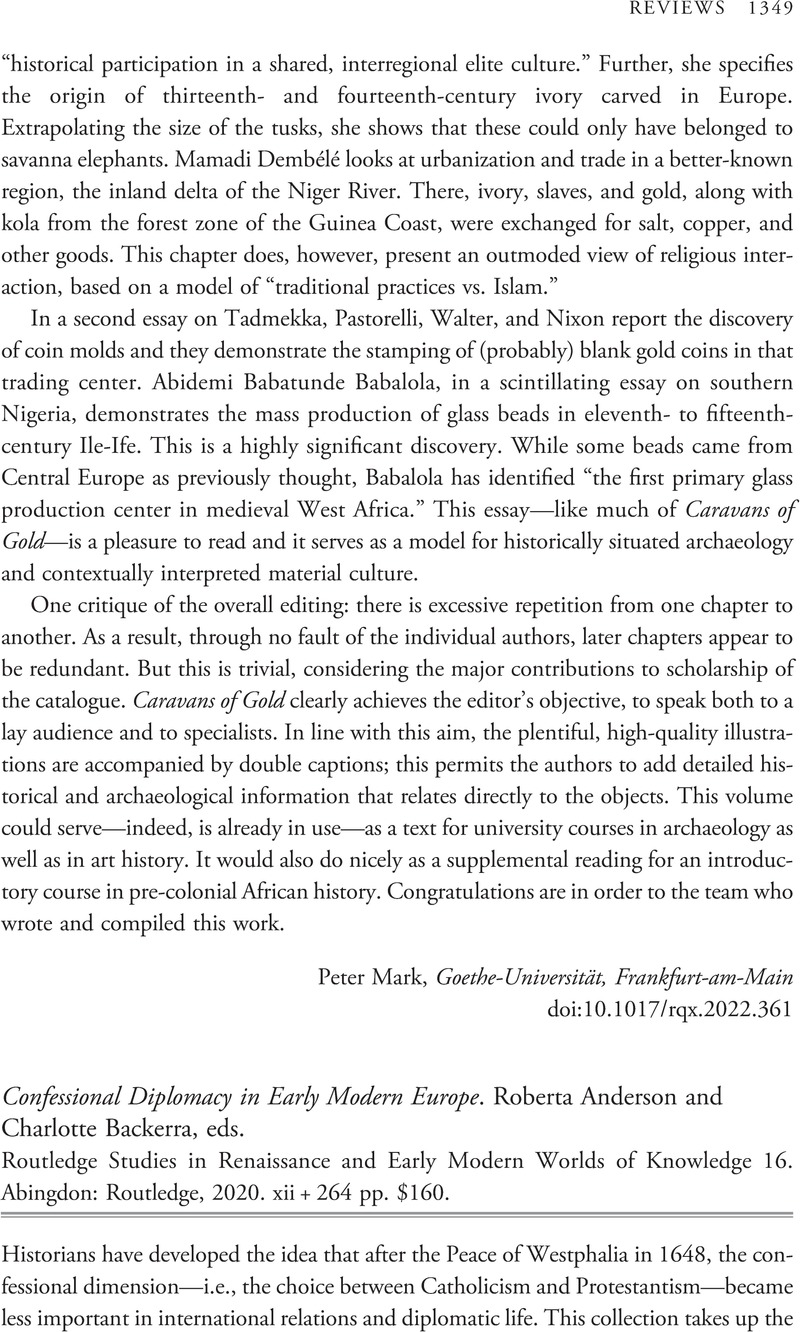No CrossRef data available.
Article contents
Confessional Diplomacy in Early Modern Europe. Roberta Anderson and Charlotte Backerra, eds. Routledge Studies in Renaissance and Early Modern Worlds of Knowledge 16. Abingdon: Routledge, 2020. xii + 264 pp. $160.
Review products
Confessional Diplomacy in Early Modern Europe. Roberta Anderson and Charlotte Backerra, eds. Routledge Studies in Renaissance and Early Modern Worlds of Knowledge 16. Abingdon: Routledge, 2020. xii + 264 pp. $160.
Published online by Cambridge University Press: 09 January 2023
Abstract
An abstract is not available for this content so a preview has been provided. Please use the Get access link above for information on how to access this content.

- Type
- Review
- Information
- Copyright
- Copyright © The Author(s), 2022. Published by the Renaissance Society of America



